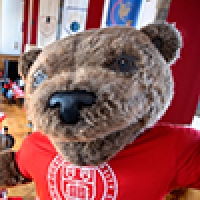What Makes the College of Human Ecology a Good Fit

Blog Post
Human Ecology students weigh in on what made the College of Human Ecology (CHE) a good fit for them.
Emily U. | Global and Public Health Sciences | Japan
As a Human Ecology student, I have learned the importance of an interdisciplinary mindset and the need to consider multiple perspectives when problem-solving. For example, combining health and design to solve societal problems never crossed my mind until being in this college, and I'm now a research fellow at the Health Design Innovation Lab. CHE allowed me to pursue interests that I didn't know existed and to take the next steps in my career. Overall, this college showed me that I don't need to follow conventional career paths to have a successful and fulfilling career.
Lauren F. | Human Development | New York
As a student who came into college unsure of what career I would ultimately pursue, the College of Human Ecology provided ample opportunity to engage in coursework that spoke to my interests while also shedding light on how I could apply this knowledge to my future. My academic advisor helped me find my favorite parts of college life that ultimately defined who I am as a person. I was encouraged to engage in research resulting in years spent with the Jury Decision Making Lab and the Adolescent Transition Lab. The College of Human Ecology offers students a unique comfort in knowing they are incredibly well equipped for diverse paths due to the uniquely versatile coursework.
Grace A. | Fashion Design Management | North Carolina
The College of Human Ecology is a great fit for me because of the dedication of the professors to create a welcoming and encouraging environment. Every Human Ecology course I take is well structured, and the professors take time to understand what interests the students and what might be challenging. For example, in my introductory fashion design course, I felt comfortable asking questions at any point, no matter what.
Ishan S. | Human Biology, Health, and Society | Texas
When applying to college, I had the goal of becoming a physician in mind. Through my experiences in high school shadowing doctors, I realized the broadness of the field of medicine and wanted to pursue a more interdisciplinary course of study as an undergraduate. This is where I found the College of Human Ecology: a school with a major I could continue growing my interest in science and biology while receiving the background in other topics that connect so deeply with medicine. Through the HBHS major, I have had the flexibility to study sociology and inequality studies and its connection to human health while immersed in the essential biology and chemistry courses. While I was originally drawn to CHE due to this focus on holistically understanding human life, I have found that the college is far more than this. It has become a home for me. I have found endless resources through CHE in programs like the Peer Mentorship Program, being a Human Ecology Ambassador, and even simply connecting with other students, professors, and advisors. The tight-knit community continues to amaze me and has made my college experience extremely smooth.
Aiyana G. | Policy Analysis and Management | Massachusetts
The College of Human Ecology is a great fit for me because of the faculty and my peers. Faculty are focused on not only teaching but also on making close connections with students and mentoring them through academic and professional goals. For example, I conducted research with Professor Sassler on Gender Discrepancies in STEM Career Outcomes. I've also been a Head Teaching Assistant (TA) for PAM 2300 (Introduction to Policy Analysis) under Professor Avery. As a result of my TA position, I created an incredible network within the PAM community. As part of this network, PAM alumni contributed to my success in obtaining a consulting summer internship. I've made some of my closest friends at Cornell through the PAM major.
Clara D. | Nutritional Sciences/ Dietetics | California
CHE has pushed me to view the issues in my area of interest from multiple perspectives. I have been able to pair my nutritional sciences classes with classes in Human Development and Policy Analysis and Management to grow my appreciation for the complexity of the human experience. I have learned about the social behaviors that impact our food choices, the science of what happens to food in our body, and the social determinants that impact what food people choose to consume through my well-rounded education in CHE.

